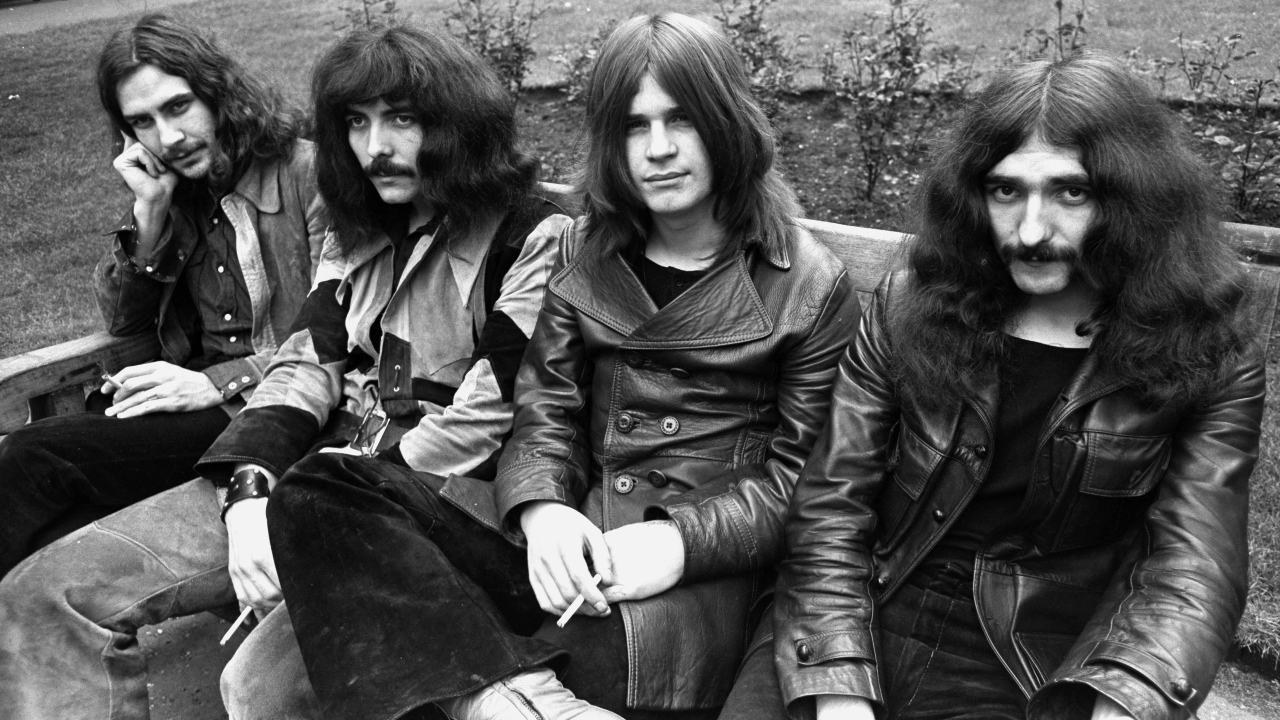
Black Sabbath released Paranoid, their trailblazing second album, a mere seven months after their debut. It was a cultural molotov, exploding to number one in the UK and 12 in the US, despite practically zero radio play.
Compositionally, Paranoid refined Ozzy Osbourne, Tony Iommi, Geezer Butler and Bill Ward’s signature, minor-key sound into a set of groundbreaking anthems. Its bleak themes of war, mental illness and political unrest, delivered with technical simplicity and raw emotion, exemplified the essence of heavy metal, drafting its blueprint for the next 50 years. Here are the stories behind the album’s eight iconic tracks:

War Pigs
Originally titled Walpurgis, Sabbath wrote this indictment of the Vietnam War while touring Europe. Geezer’s lyricism marked a dramatic shift from the supernatural foreboding of Sabbath’s debut, but the label baulked at lines like, “Eating dead rats’ innards.” So, the title change and final lyrics reflect a creative compromise. More change came when producer Rodger Bain and engineer Tom Allom sped up the song’s ending without the band’s knowledge: “We had no say in it in those days,” explained Tony. Rolling Stone readers ranked War Pigs as Sabbath’s greatest song in 2013.
Paranoid
“I doubt we even knew what the word [‘paranoid’] meant at the time,” Tony wrote in his autobiography, Iron Man. When Rodger Bain asked for another track to fill out the new album, the guitarist wrote Paranoid in four minutes: “Paranoid was like a throwaway,” he’s since said. Despite Geezer’s concerns that it sounded too close to Led Zeppelin’s Communication Breakdown, Sabbath released Paranoid as a single and it became their only top 10 UK hit. It’s since become the band’s most popular song on streaming services.
Planet Caravan
This soothing and psychedelic ballad offers a reprieve after the breathtaking aggression of Paranoid’s openers. Ozzy’s vocals soar into the upper register, filtered through a Leslie speaker to add a bewitching vibrato. Ultimately, it’s Bill Ward’s exotic percussion that stands out. “Bill just started going in on the congas he had,” said Tony in the Classic Albums programme on Paranoid. On May 31, 2020, Planet Caravan was used to wake up the crew of the SpaceX ship Dragon, before the capsule docked with the International Space Station.
Iron Man
“Most of the riffs I’ve done, I’ve come up with on the spot,” Tony’s said, “and that was one of them – it just came up […] I just saw this thing in my mind of someone creeping up on you, and it just sounded like the riff.” Upon hearing that part, Ozzy remarked that it sounded “like a big iron bloke walking about”, and thus the working title Iron Bloke was inspired. Despite Iron Man’s later title, Geezer’s lyrics about time travel and alienation have sweet F.A. to do with the Marvel Comics character.
Electric Funeral
Inspired by the encroaching fear of nuclear annihilation as the intensity of the Cold War increased, Electric Funeral unfurled as a sombre companion to War Pigs, considering a desolate planet ravaged by war. “The Cold War was at its height,” Geezer’s explained. “Everybody thought they were gonna get blown to bits any second. So it was just all about real life and what was going on.” There’s also a great nod to Pink Floyd two minutes in, with a chord progression that recalls the opening riff of Interstellar Overdrive.
Hand Of Doom
After meeting scores of US soldiers who had turned to heroin to cope with their PTSD, Geezer penned these lyrics about their plight. “They were telling me that, to get through the horrors of Vietnam, they were turning to drugs over there, which, you know, was never broadcast on TV or anything like that back then,” he told IGN in 2010. Ozzy backed this up in a 1970 interview with NME, stating that Sabbath had “seen a lot of people like that, and it’s getting out of all proportion”.
Rat Salad
Though the title refers to a rat infestation in a kitchen, Rat Salad is really a showcase for Bill, who routinely played extended drum solos during Black Sabbath’s live sets. Years later, Rat Salad was one of the original band names bandied about for Van Halen, who covered Sabbath regularly in their early days. “Yeah, that’s right,” Eddie Van Halen said in a 2013 interview with Guitar World. “We played just about every Black Sabbath song […] When we toured with Black Sabbath in 1978, they scared the shit out of us.”
Fairies Wear Boots
Though several stories float around concerning this track’s genesis, it’s certain that Sabbath had a couple of violent altercations with skinheads, keen to go after the band for their long hair and hippie alliances. Said Geezer: “We did this gig in the seaside town of Weston-Super-Mare, and we had a fight with all these skinheads. I think that’s where the lyrics for Fairies Wear Boots came from.” The song’s instrumental intro, Jack The Stripper, refers to a series of murders committed in London’s West End in the mid-’60s, known as the Hammersmith Nude Murders.







